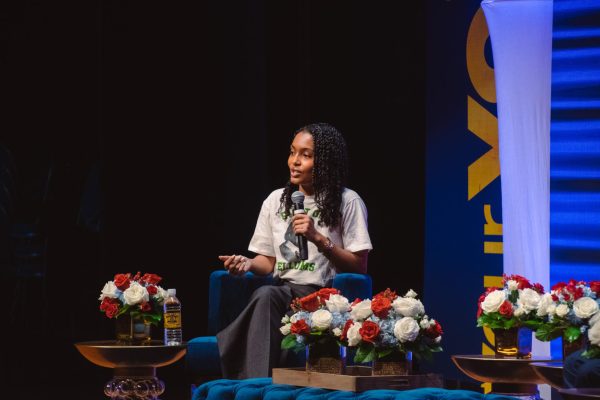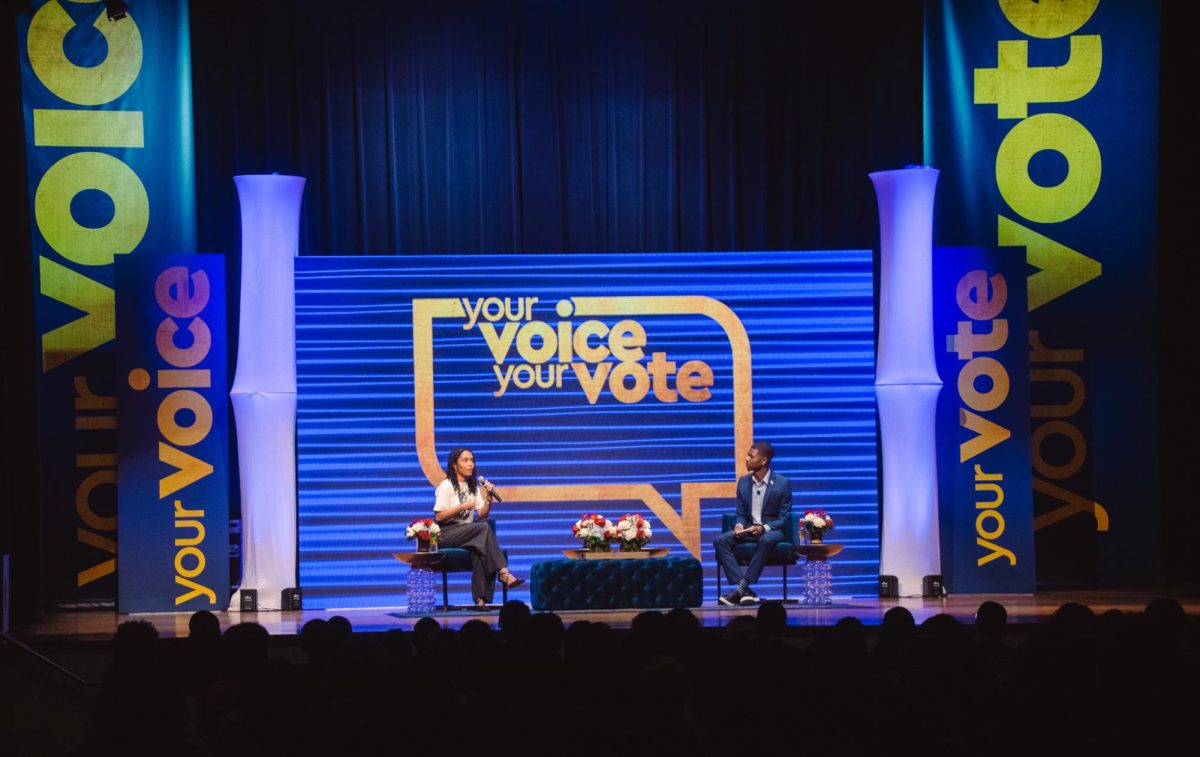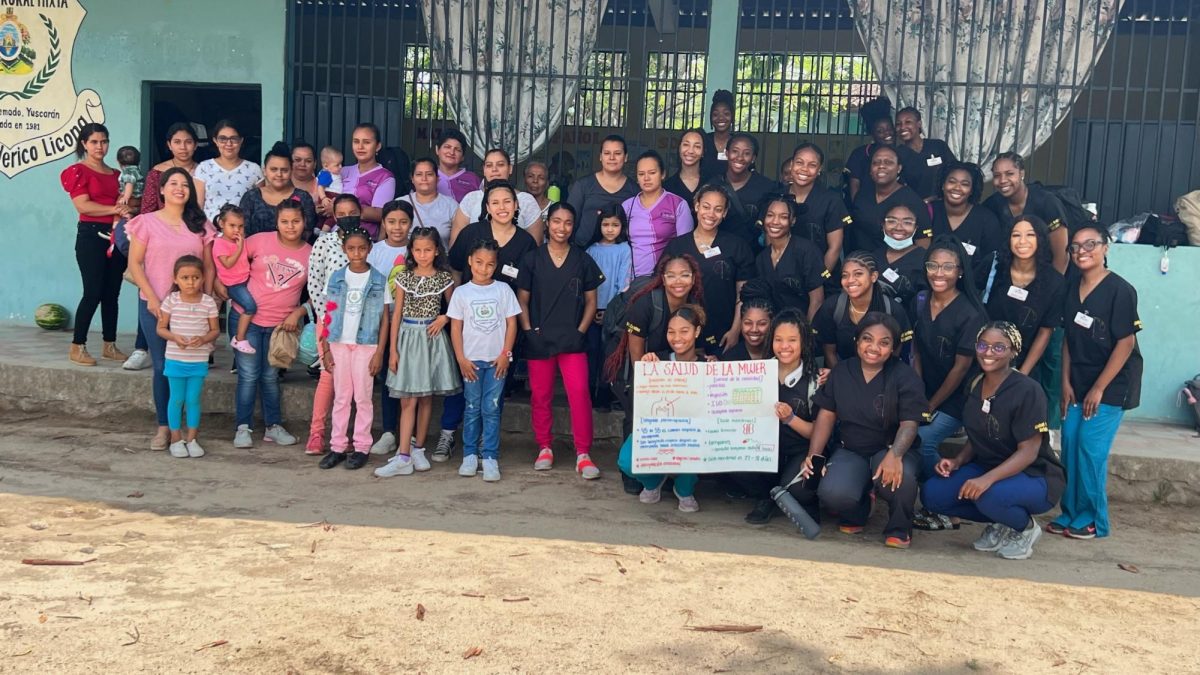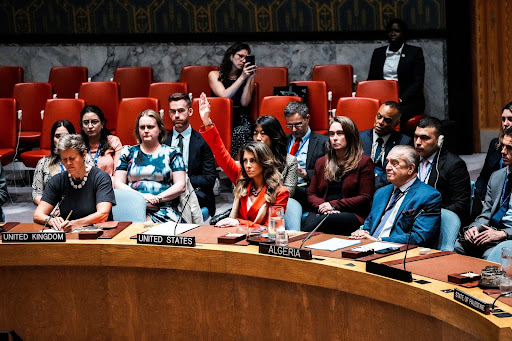Hundreds of students, faculty and community members gathered in N.C. A&T’s Harrison Auditorium on Oct. 24 for Yara Shahidi’s visit as the newest guest in the Chancellor Speaker Series.
The series provides a platform for discussion of complex and pressing societal issues while featuring distinguished guests.
Shahidi, an award-winning actress and social advocate, led a conversation on civic engagement and unpacked her background in advocacy. A&T alumnus and Democratic National Convention Youth Coalitions Director Tylik McMillan moderated the conversation.
McMillan opened the conversation with Shahidi by discussing how she found her “voice” and platform in the activism realm.
“It wasn’t something I discovered on my own. I come from a family of educators and people who regardless of position, found ways to be of service to their communities,” Shahidi said. “I think so many times as young people we are put into a position to just suddenly develop a fully thought out philosophy on life at 18 but aren’t often given the space to work it out in real time.”
As young voters are becoming increasingly involved in civic engagement and finding that “voice”, a survey conducted by the Inside Higher Ed and Generation Lab found that 8 percent of college students aged 18-29 are still not planning to vote in the 2024 election cycle.
The renowned actress encouraged students to be willing to participate in discourse among friend groups about voting and political issues.

Saudiyah Robinson, a sophomore landscape architecture student and first time voter attended the series to gain more clarity on getting involved.
“A lot of us [students] kinda feel like where do we start–we have a lot of questions,” Robinson said. “Being able to hear her advice that she gives definitely helps with what to do and where to go.”
Shahidi also highlighted the importance of the community, especially young voters, maintaining community engagement beyond the polls.
“Voting is one of our many tools, it’s an essential tool, it is a tool that we have to utilize but it is so far from where the buck ends with how we show up and make sure that our communities are cared for,” Shahidi said.
She also took time to reflect on her unique experiences as a student at Harvard in the years leading up to the reversal of affirmative action. She recalled the lack of urgency she felt in the initial lawsuit filings that led to the supreme court decision.
“I bring that up as an example of how much happens in the ‘off season,’” Shahidi said. “I think those are moments that we can all look around at what’s happening and figure out how to re-engage.”
While Shahidi uses her platform to encourage participation in the electoral process, she also recognizes the barriers individuals face, especially African-Americans and validates the feelings of discouragement experienced by many.
“Even in the last election we saw how critical Stacey Abrams’ organization was to making sure that our voices were heard because people were dealing with physical obstacles,” she said.
After a narrow loss in the 2018 gubernatorial race, Abrams led a coalition of people through her non-profit organization New Georgia Project to register over 500,000 new voters and actively addressed voter suppression issues in the 2020 presidential race. Abrams is widely credited for President Joe Biden’s win in Georgia.
Shahidi encouraged the audience to use those instances of oppression as motivation to continue finding their place in civic engagement while also maintaining a balance.
“You have to give yourself the space to validate that you feel this way for a reason – and I’m not just saying about getting to the polls – but the entire ecosystem; it’s overwhelming,” Shahid said. “Those conversations, even though they may feel depressive in the moment, are necessary to have.”







